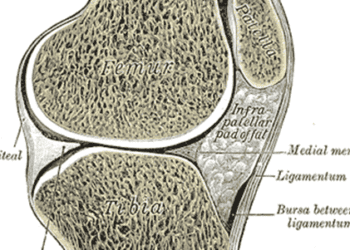Vitamin D supplementation in children increases serum levels but may not impact growth
1. In a randomized controlled trial, weekly vitamin D supplementation improved serum 25(OH)D levels but did not affect growth or body composition in school-aged children in regions where vitamin D deficiency is common.
2. Weekly vitamin D supplementation did not affect pubertal development including Tanner stages, age of menarche, breast development, or changes in external male genitalia.
Evidence Rating Level: 1 (Excellent)
Study Rundown: Vitamin D deficiency is common among children living in temperate climates and has been associated with delayed and slowed growth, lower lean mass, childhood obesity, and precocious puberty in children. The US Institute of Medicine recommends maintaining 25(OH)D concentrations of 20 ng/mL or higher to ensure skeletal health in children. However, previous studies were predominantly observational studies, and controlled trials are lacking to support this recommendation. This randomized clinical trial (nb=8851) investigated the relationship between weekly vitamin D supplementation and linear growth, body composition, and pubertal development in school-aged children in an area where vitamin D deficiency prevalence is high (Ulaanbaatar, Mongolia). Weekly high-dose (14,000 IU) vitamin D supplementation did not affect metabolic outcomes of growth, puberty development, weight, obesity, or menarche at 1, 2, or 3 years follow-up. This is in contrast to previous studies in adolescents, where a lower daily dose of vitamin D (300-800 IU) lead to increased growth parameters in regions where vitamin D is highly prevalent. The differences in the age groups (school age vs. adolescence) and treatment plan (weekly high dose vs daily low dose), make these two contrasting studies difficult to compare. Future studies are required to further evaluate the relationship between vitamin D supplementation and metabolic parameters. Currently, it is uncertain if vitamin D supplementation has impacts on metabolic parameters in school-aged children.
Click here to read the article in JAMA Pediatrics
In-Depth [randomized controlled trial]: A parallel two-arm double-blinded randomized placebo-controlled trial was conducted from June 2016 to June 2019 in 18 public schools in Ulaanbaatar, Mongolia. 11,475 children were invited to participate. This study is a secondary analysis of the primary study, where 8851 met inclusion criteria and were randomized to a weekly capsule of 14,000 IU vitamin D3 or placebo for 3 years. During school terms medications were administered at school, whereas children were given a single bolus dose of up to 36,000 IU during holiday periods. 25(OH)D were determined in serum samples at baseline and 3-year follow-up to ensure treatment adherence and were significantly higher in the treatment group at follow-up. Primary outcome included mean height-for-age z score at 1, 2, and 3 years follow-up. Secondary outcomes included mean BMI-for-age z score, mean waist-to-height ratio z score, mean % body fat, mean fat mass, mean fat-free mas, mean Tanner scores for pubic hair, external genitalia (male only), and breast development (female only), the proportion of participants reaching menarche (female only), and mean age of menarche (female only). There were no significant differences (p>0.05) between any primary or secondary outcomes and the exposure to weekly vitamin D supplementation.
Image: PD
©2022 2 Minute Medicine, Inc. All rights reserved. No works may be reproduced without expressed written consent from 2 Minute Medicine, Inc. Inquire about licensing here. No article should be construed as medical advice and is not intended as such by the authors or by 2 Minute Medicine, Inc.







